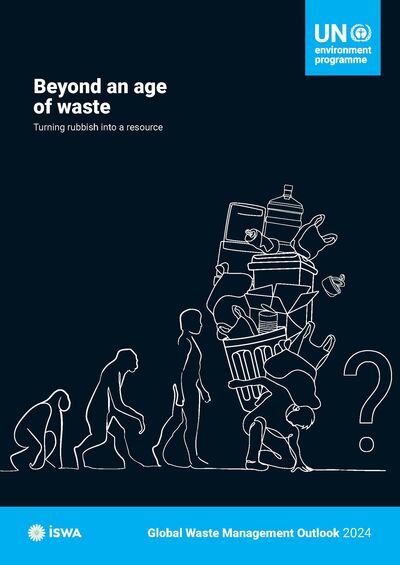UNEP’s Global Waste Management Outlook 2024 : UN report: World must move beyond waste era and turn rubbish into resource

With municipal waste set to increase by two-thirds and its cost almost doubling within a generation, only a drastic reduction in waste generation will ensure a liveable and affordable future, according to a new report by the United Nations Environment Programme (UNEP).
Titled ‘Beyond an age of waste: Turning rubbish into a resource’, UNEP’s Global Waste Management Outlook 2024 (GWMO 2024) provides the most substantial update on global waste generation and the cost of waste and its management since 2018. The analysis uses life cycle assessments to explore what the world could gain or lose through continuing business-as-usual, adopting halfway measures, or committing fully to zero waste and circular economy societies.
According to the report, municipal solid waste generation is predicted to grow from 2.3 billion tonnes in 2023 to 3.8 billion tonnes by 2050. In 2020, the global direct cost of waste management was an estimated USD 252 billion. However, when factoring in the hidden costs of pollution, poor health and climate change from poor waste disposal practices, the cost rises to USD 361 billion. Without urgent action on waste management, by 2050 this global annual cost could almost double to a staggering USD 640.3 billion.
Finding solutions to reduce waste generation
“Waste generation is intrinsically tied to GDP, and many fast-growing economies are struggling under the burden of rapid waste growth. By identifying actionable steps to a more resourceful future and emphasising the pivotal role of decision-makers in the public and private sectors to move towards zero waste, this Global Waste Management Outlook can support governments seeking to prevent missed opportunities to create more sustainable societies and to secure a liveable planet for future generations,” said Inger Andersen, UNEP’s Executive Director.
“The GWMO 2024 is a guide and call for action to catalyse collective efforts to support bold and transformative solutions, revert the adverse impacts of current waste management practices, and provide clear benefits to every individual living on this planet. These actions are instrumental to accelerating the achievement of the 2030 Agenda. As a partner and supporter of the GWMO since its inception, ISWA will ensure it is now disseminated and implemented on the ground by providing the support needed to address the challenges currently observed," said Carlos Silva Filho, ISWA’s President.
The report's modelling shows that controlling waste by adopting measures to prevent and manage waste could limit annual net costs to $270.2 billion by 2050. However, projections show that a circular economy model, in which waste generation and economic growth are decoupled through the adoption of waste prevention, sustainable business practices and full waste management, could actually lead to a full net gain of $108.5 billion per year.

Shift to zero waste
“The findings of this report demonstrate that the world urgently needs to shift to a zero waste approach, while improving waste management to prevent significant pollution, greenhouse gas emissions and negative impacts to human health. Pollution from waste knows no borders, so it is in everyone’s interests to commit to waste prevention and invest in waste management where it is lacking. The solutions are available and ready to be scaled up. What is needed now is strong leadership to set the direction and pace required, and to ensure no one is left behind,” said Zoë Lenkiewicz, lead author of the report.
The report is launching at the sixth session of the United Nations Environment Assembly (UNEA-6), which is taking place from 26 February to 1 March at UNEP’s headquarters in Nairobi, Kenya.
For more information and or to download of the full report click here or use the QR code.

